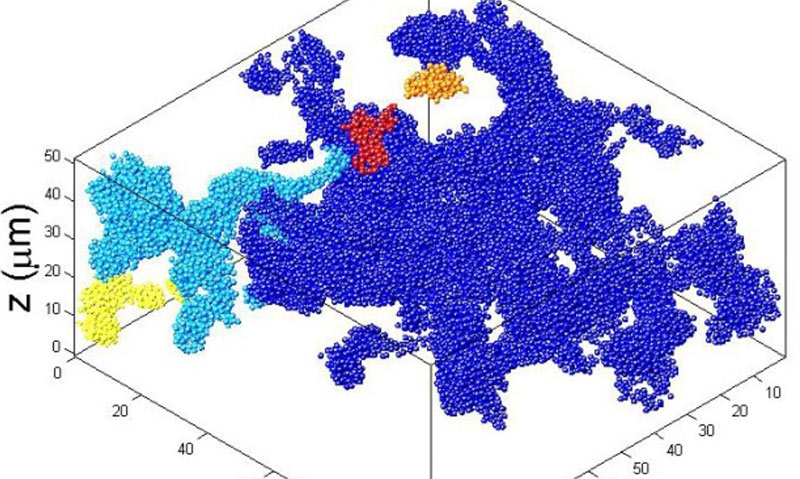We investigate how glasses yield under applied mechanical stress, and discover a remarkable universal mechanism: Domains of local rearrangements that carry the deformation of glasses (see “Flow of glasses”) grow under the increasing applied stress, until they percolate across the sample and the glass yields and starts to flow macroscopically. Indeed, tracking the size of these flow domains as we approach the yielding transition shows that the largest cluster diverges; the corresponding correlation length diverges with a power law with exponent of ~0.8, the same as for three-dimensional percolation models! Our results thus show that the yielding of a glass is related to a non-equilibrium second order transition, which points to a universal phenomenon associated with the yielding of materials.
The picture above is a reconstruction of a yielding colloidal glass, where we highlight only the flow domains. At this moment close to yielding, the largest cluster (blue) spans the field of view, indicating a percolating flow network. See our paper in Phys. Rev. Lett.
